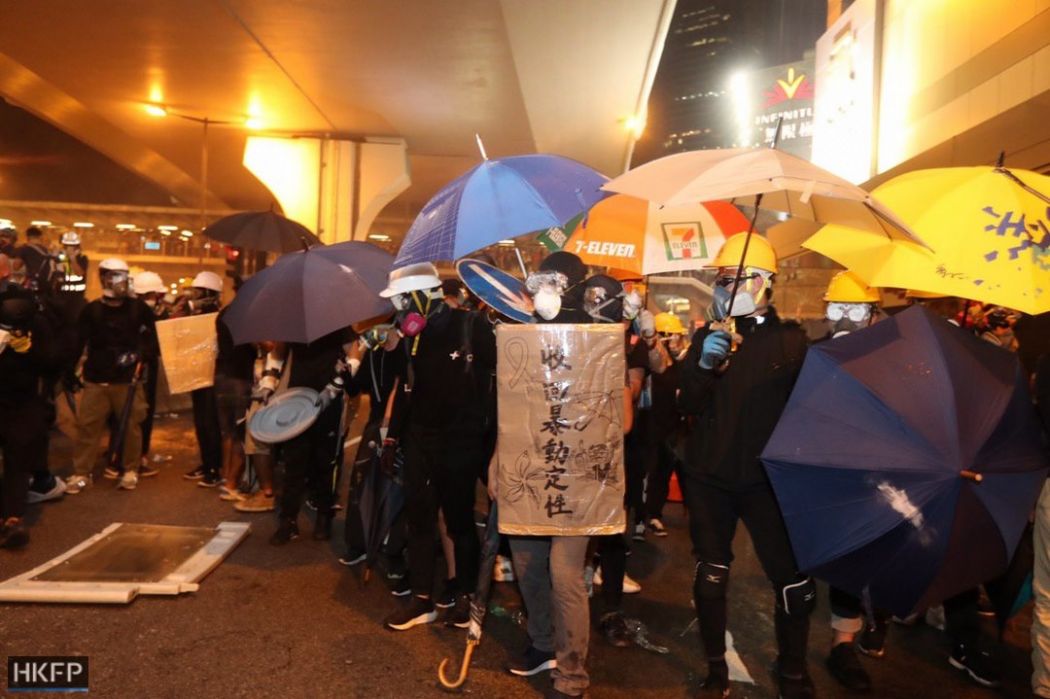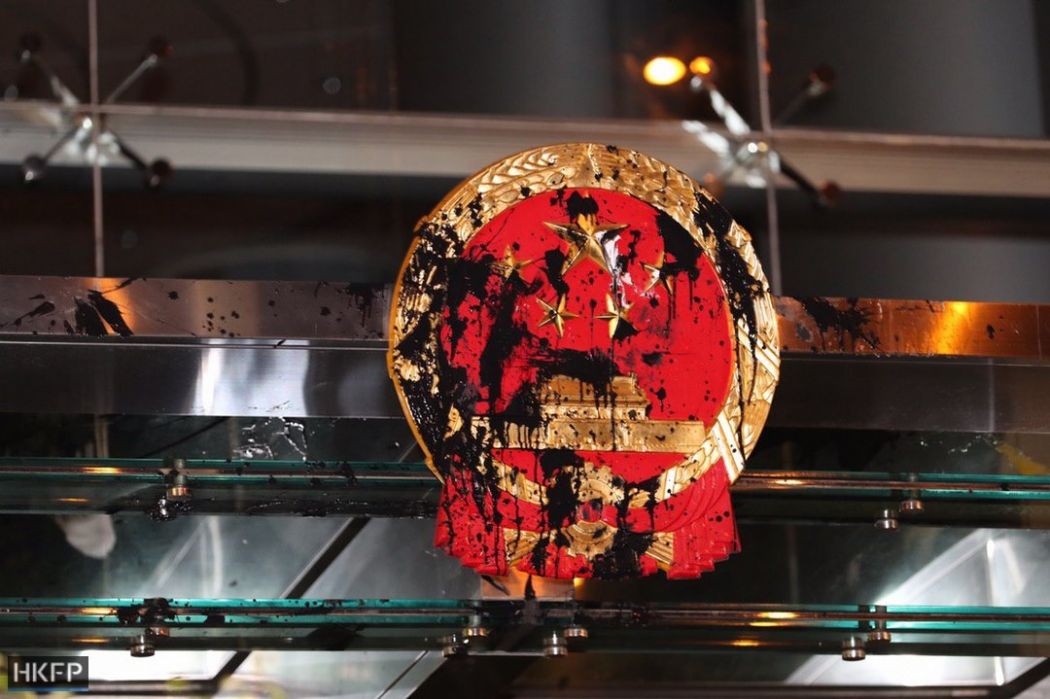A spokesperson for China’s defence ministry has condemned Hong Kong’s anti-government protests, reiterating that the city is able to call upon Chinese military personnel stationed in the city to intervene if necessary. The comments came after anti-extradition law protesters vandalised the exterior of Beijing’s office in Sai Wan on Sunday.
At a Tuesday press event for a national security white paper, Wu Qian said that the defence ministry was “closely following the developments in Hong Kong,” especially the incident of “radicals attacking the China Liaison Office on July 21.”

His comments echoed that of the director of the China Liaison Office Wang Zhimin and other state media reports. Hundreds of masked pro-democracy demonstrators briefly occupied the road outside the office on Sunday night, and threw paint at the national emblem on the building’s facade.
“These actions challenge the authority of the central government and the bottom line of One Country, Two Systems. They cannot be tolerated,” Wu added.

Asked by reporters about how the defence ministry plans to tackle Hong Kong’s “separatists,” Wu said that article 14 of the Garrison Law had “clear stipulations” but did not elaborate.
According to the Chinese legislation, the Hong Kong government may, when necessary, ask the central government for assistance from the People’s Liberation Army stationed in the city “in the maintenance of public order and in disaster relief.”

If the request is approved, the troops must work according to the orders of the Central Military Commission, and shall “immediately return to their station after the task has been accomplished.”
The troops would be under the command of the garrison’s highest commander, or any officer authorised by them, with the arrangements made by the Hong Kong government.
On Tuesday, Wu was also asked if the military exercises conducted in Zhanjiang recently had anything to do with Hong Kong. Wu repeated his answer that there were relevant stipulations in the Garrison Law.
The incident in Sai Wan followed seven weeks of anti-government protests sparked by the controversial extradition bill, which would enable Hong Kong to handle fugitive transfer requests from jurisdictions including China. The proposed law was suspended on June 15 but not axed.
